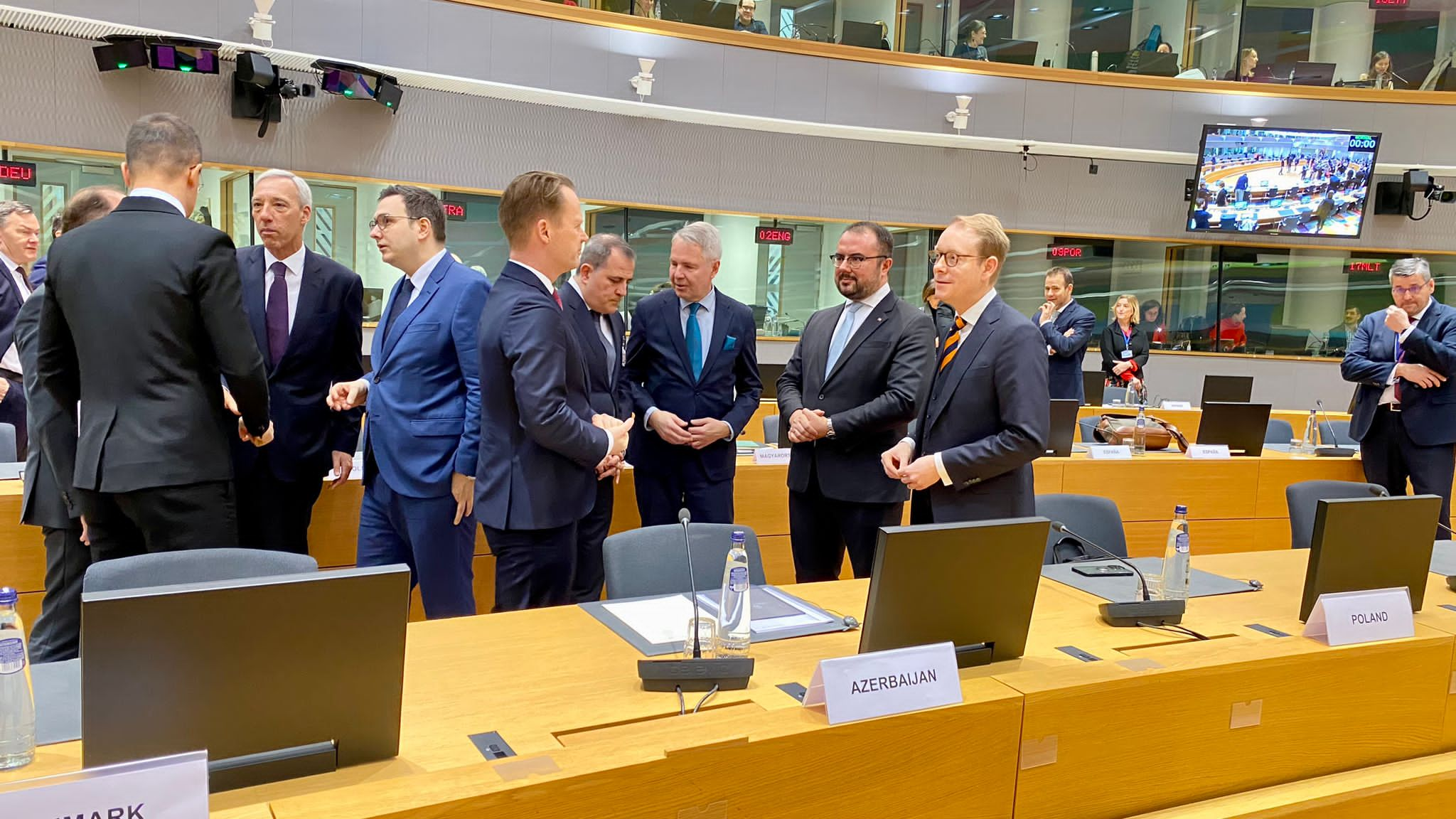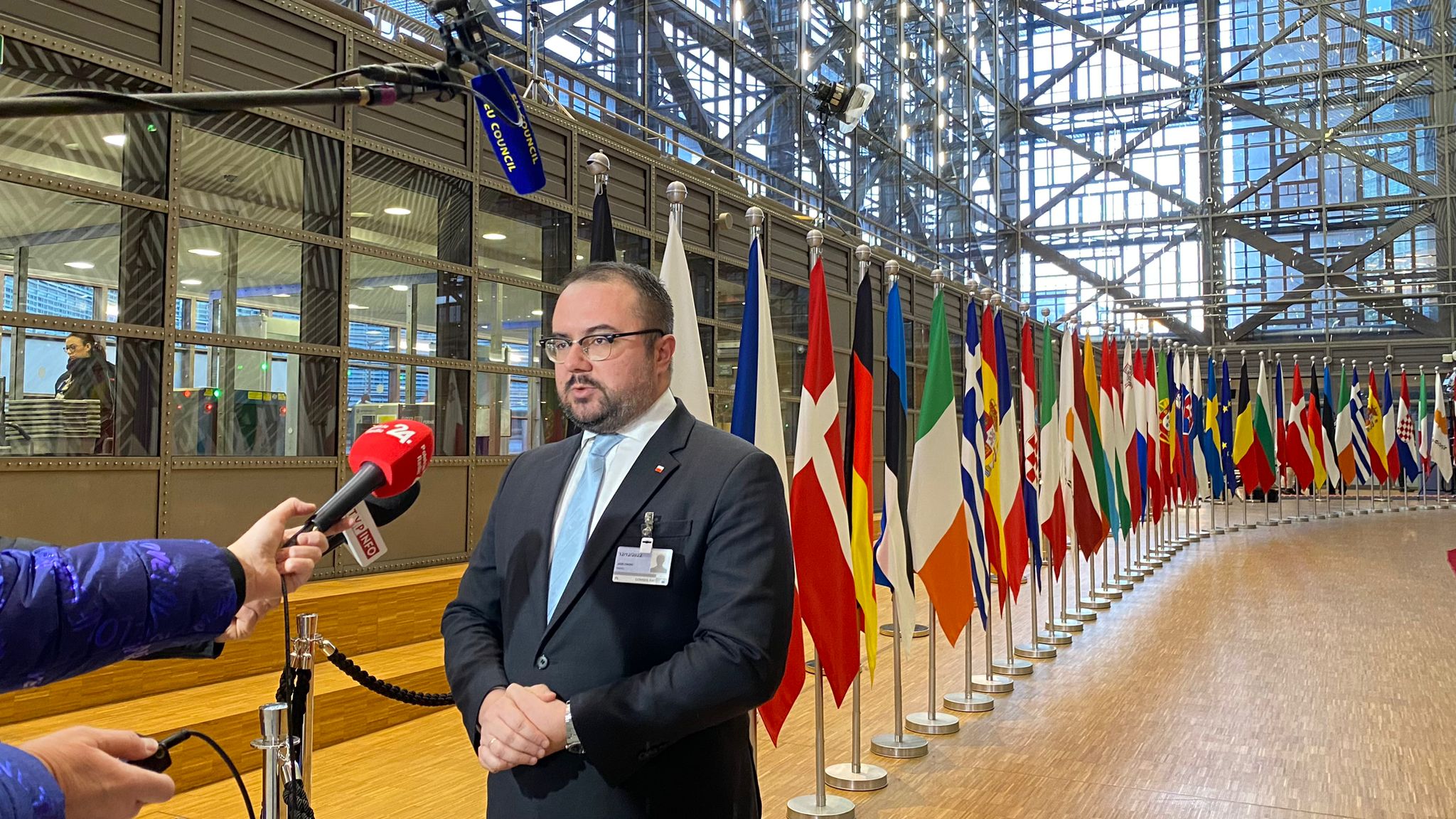MFA Undersecretary of StatePaweł Jabłoński attends EU ministerial meeting
12.12.2022
On 12 December, Undersecretary of State at the Ministry of Foreign Affairs Paweł Jabłoński – acting on behalf of Foreign Minister Rau – took part in a working lunch of EU foreign ministers, who dealt with the Eastern Partnership. Organised at the initiative of Romania, Poland, the Czech Republic, and Sweden, the meeting was co-hosted by Josep Borrell, High Representative of the EU for Foreign Affairs and Security Policy.

The purpose of the meeting was to coordinate positions before the meeting of EU foreign ministers and the Eastern Partnership. Deputy Minister Jabłoński focused on the need to support Belarusian civil society and increase the energy independence of the Eastern Partnership countries.
At the EU-EaP ministerial meeting that brought together five partner countries (with one seat left empty for Belarus), the participants reaffirmed the importance of the Eastern Partnership as the EU’s only coherent Eastern policy. They underlined the Eastern Partnership’s complementarity with the preparations of Ukraine, Moldova, and Georgia for EU membership. The ministers also pointed out the need to strengthen the resilience of Armenia and Azerbaijan and support them in their efforts to achieve peace and improve mutual relations. Also raised were the support for the democratic forces in Belarus, the importance of enhanced sectoral, economic, and energy cooperation as well as the common values underpinning the Eastern Partnership policy. The ministers noted its role as an instrument to promote security, stability, and prosperity along the EU’s eastern border.
“The EU’s security and stability are inseparably linked with the security and stability of its Eastern Neighbourhood,” stressed Deputy Minister Jabłoński in his address. He also referred to the new dynamics resulting from the granting of EU candidate status to Ukraine and Moldova. “The Eastern Partnership has enabled the political transformation of the partner countries. It should now be coordinated with the enlargement process,” he added.
On the same day, Deputy Minister Paweł Jabłoński also participated in the Foreign Affairs Council. In the discussion on Russia’s aggression against Ukraine, he stressed that Poland warned against offering Russia talks in the current circumstances. Rocket attacks on the Ukrainian energy infrastructure show that Russia wants to force Ukraine to surrender. The Polish diplomat emphasised that increasing military aid, including air defence systems, and supporting the rehabilitation of critical infrastructure are the key components of assistance to Ukraine. The deputy minister spoke in favour of increasing the budget of the European Peace Facility and welcomed the recent launch of the EU Military Assistance Mission in support of Ukraine. He referred to the power supply equipment Poland has supplied to Ukraine and to Poland’s role as a coordinator in delivering aid from other countries via a logistics hub under the RescUE instrument.
Deputy Minister Jabłoński pointed out that it is necessary to decide to release macro-financial assistance for Ukraine for 2023 and to maintain a high pace of Ukraine’s EU accession process. He stressed that the EU must strengthen, toughen and extend sanctions, and expressed his expectation that the ninth package of sanctions would be adopted prior to the European Council meeting scheduled for 15-16 December 2022. The deputy head of the Polish MFA welcomed actions to hold Russia responsible for the crime of aggression and for the damage caused to Ukraine. In the context of the global food crisis, which is a consequence of Russia’s aggression against Ukraine, the undersecretary of state referred to Prime Minister Mateusz Morawiecki’s announcement of Poland’s plans to finance the transport of USD 20 million worth of grain to Nigeria.
During a discussion on EU-Iran relations, Deputy Minister Paweł Jabłoński underscored that the Russian aggression against Ukraine is a violation of international law and that Russia commits crimes against the civilian population. Therefore, any attempts to support Russia, particularly by supplying arms or military equipment, are unacceptable and should not take place. Talking about the public protests in Iran, the deputy minister stressed the need to refrain from violence and to clarify the circumstances in which violence was used. He also pointed out that it is necessary to resume negotiations on the revival of the Joint Comprehensive Plan of Action (JCPOA), which is vital for the architecture of non-proliferation of nuclear weapons and is of strategic importance for security in the Middle East.
Łukasz Jasina
MFA Spokesperson
Photo: MFA



